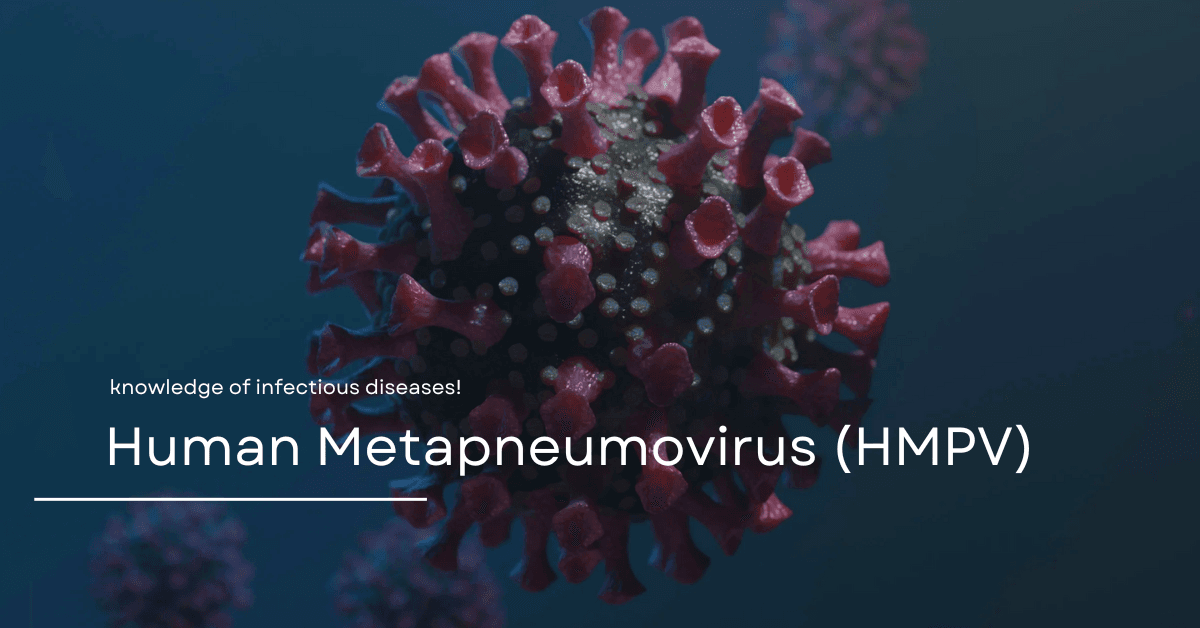Human metapneumovirus (HMPV), commonly referred to as HMPV, typically leads to cold-like symptoms. If you’re affected, you might experience a sore throat, a runny nose, and a cough. While most cases are mild, young children, individuals over 65, and those with weakened immune systems are at a higher risk for serious illness. It’s not uncommon for people to have had HMPV by the time they reach five years old.
Understanding Human Metapneumovirus (HMPV)
Human Metapneumovirus (HMPV) is a virus that typically shows symptoms similar to those of a common cold. It primarily causes upper respiratory infections, but can also lead to lower respiratory issues such as pneumonia, asthma exacerbations, or worsening chronic obstructive pulmonary disease (COPD). HMPV infections tend to be more prevalent during the winter months.
Usually, HMPV occurs before the age of five. After an initial infection, symptoms of HMPV are often moderate, though recurrence is possible.
Is Human metapneumovirus (HMPV) just a cold?
Although the symptoms of human metapneumovirus usually resemble a cold, some people may become seriously ill. Your chances of getting seriously ill are higher the first time you get HMPV, which puts young children at higher risk for serious illness. You get some immunity from your first infection, and if you get it again, you’re more likely to have mild, cold-like symptoms. Adults over 65 and those with compromised immune systems or breathing issues may also experience severe symptoms.
How common is the human metapneumovirus?
Between 5% and 16% of children will acquire pneumonia or another lower respiratory tract infection, though most instances are mild.
Are human metapneumovirus and RSV the same thing?
Although they are not the same, human metapneumovirus and respiratory syncytial virus (RSV) are related.. It is in the same genus, or scientific grouping, as RSV (pneumovirus) and exhibits similar symptoms. HMPV is more likely to cause severe sickness in infants aged six to twelve months, whereas RSV is more likely to cause significant disease in infants younger than six months.
Symptoms and Causes
What symptoms are indicative of human metapneumovirus?
Symptoms of human metapneumovirus include:
-Fever, cough.
-Runny or stuffy nose.
-Painful throat.
-Wheezing.
-Breathlessness, or dyspnea.
-Rash.
What is the mechanism of human metapneumovirus transmission?
Direct interaction with an infected individual or coming into contact with infected materials can spread HMPV. For instance:
-coughing and sneezing.
-Shaking hands, kissing, or hugging.
-Regular things, objects including phones, keyboards, doorknobs, and toys.
What are the human metapneumovirus risk factors?
HMPV can infect anyone, however, you run a greater chance of developing a serious infection if you:
are older than 65 or younger than 5 (particularly preterm newborns).
possess a compromised immune system, either as a result of drugs that suppress the immune system or illnesses like HIV, cancer, or autoimmune diseases.
possess COPD or asthma.
What side effects can human metapneumovirus cause?
Occasionally, HMPV can lead to issues. These can be so bad that you have to go to the hospital. These include:
-bronchiolitis.
-bronchitis.
-pneumonia.
-flare-ups of COPD or asthma.
-Otitis media, or ear infection.
Diagnosis and Testing
How is human metapneumovirus diagnosed?
Medical practitioners usually make the diagnosis of HMPV based on your symptoms and medical history. In a lab, the sample is analyzed for viruses and other illnesses. Keep in mind that you are unlikely to be tested for HMPV unless you have really serious symptoms.
Sometimes your doctor may also do a chest X-ray or bronchoscopy to look for changes in the airways of your lungs.
Managing and Counseling
How is the human metapneumovirus treated?
Antiviral medications cannot treat human metapneumovirus. Most people can control their symptoms at home until they feel better.
If you or your child are seriously unwell, it may be necessary to go to the hospital for treatment. There, medical personnel can monitor your condition and help prevent it from growing worse. They might provide you with:
oxygenation. If you are having difficulty breathing, a medical expert may place a tube in your nose or a mask on your face to provide you with additional oxygen.
intravenous liquids. Intravenous (IV) fluids can help you stay hydrated.
corticosteroids. Because steroids reduce inflammation, they may help you with some of your symptoms.
Do I need antibiotics for human metapneumovirus?
Antibiotics are effective only against bacterial infections. Since human metapneumovirus (HMPV) is a viral infection, antibiotics won’t be useful in this case. However, if someone develops pneumonia from HMPV and then gets a bacterial infection at the same time (which is called a secondary infection), your healthcare provider might prescribe antibiotics to treat that second infection.
How long does human metapneumovirus last?
If you’re feeling quite unwell, it might take a bit longer to fully recover. Some symptoms, like a persistent cough, could linger even after you start feeling better.
How can I take care of myself?
For mild, cold-like symptoms assoStay well-hydrated by drinking plenty of fluids!iated with HMPV, you can manage your care at home by:
- Make sure to drink enough fluids to keep yourself well-hydrated.
- Taking over-the-counter (OTC) medications such as pain relievers, decongestants, and cough suppressants to ease your symptoms. Just ensure you consult a pediatrician before giving any medications to children, as some remedies that are safe for adults might not be suitable for kids.
Cases in India: Two children in Nagpur have tested positive for HMPV, bringing the total number of cases in India to seven.
To know more: https://www.lung.org/
Latest News Follow: https://visionarydaily.in/



